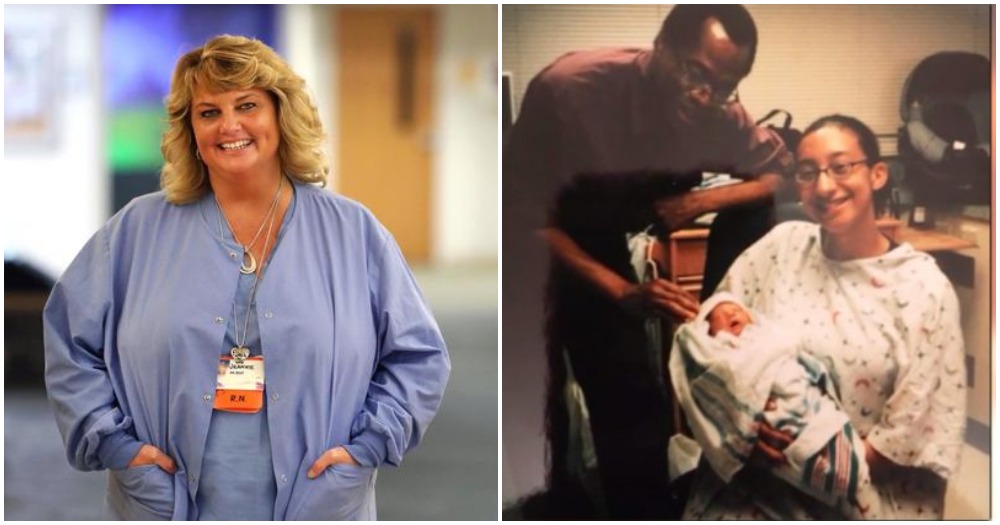
The teen parents tucked the baby into an old boot box Coates found in her closet and included a Winnie the Pooh doll and a couple Gerber rice cereal packets near the baby’s head. Then, using her best penmanship on notebook paper, Coates wrote her baby and the hospital staff a note.
“It said, ‘We love you, we are just not able to raise you. We want his name to be Allen Corey and we will hope to be able to see you again. God will be watching over you,'” Coates recalled.
Allen’s dad climbed down the ladder outside Coates’ window carrying the baby in the shoebox, and walked along Rockford’s main roads to the hospital, Coates said. It was nearly eight miles away.
‘Someone looking down on him’
At the time, SwedishAmerican hospital had never received an infant under the Safe Haven law, which was enacted in 2001 to protect babies who are then put up for adoption.
Today, 120 babies have been relinquished and placed for adoption in Illinois under the law. Most of them are given up at hospitals, said Dawn Geras, executive director for the Save Abandoned Babies Foundation, which lobbied for the law and now works to educate the public.
Joseph, who had by then been a neonatal nurse for more than a decade, knew the law had been passed but had never seen it in action. That changed on that April morning when the hospital’s Emergency Department called the nursery to say they were sending a possible Safe Haven baby upstairs.
A few minutes later, Joseph saw a teen boy crying as he walked toward the nursery carrying a shoebox. He wore a hooded sweatshirt and looked terrified as he handed the box to medical staff, said Joseph, who remembers thinking how young he looked.
“We were sad, of course, but we had to work very fast with this baby,” Joseph said.
Jeannie Joseph, a registered nurse at SwedishAmerican hospital in Rockford, remembers a special event from a cold, snowy day in April 2004. She still works full time in the hospital’s special care nursery.
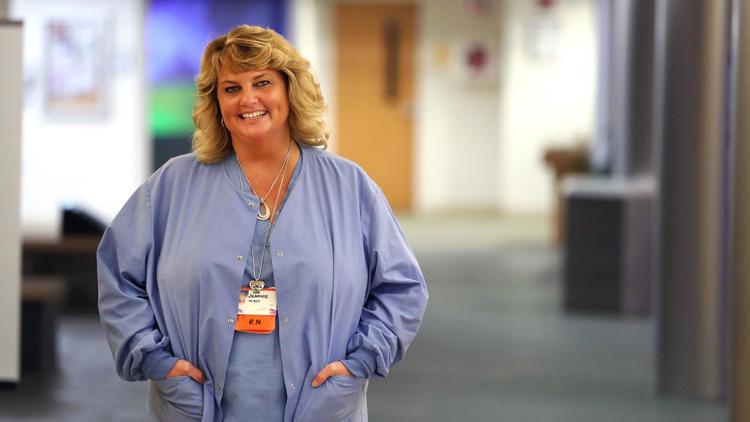
The baby’s father stood by and watched as the medical team took the infant into isolation and began warming his body, Joseph recalled. She told the young father he didn’t have to give names but that information on the baby’s mother and birth circumstances would be helpful.
With a body temperature of 94.7, the baby was in grave condition. Premature babies must be kept warm immediately because they lack the fat to raise their body temperature. They also are often not developed enough to regulate their own blood sugar or breathe on their own, said Dr. Martin Anyebuno, a MEDNAX-affiliated neonatologist at SwedishAmerican, who treated the baby that day and still works at the hospital.
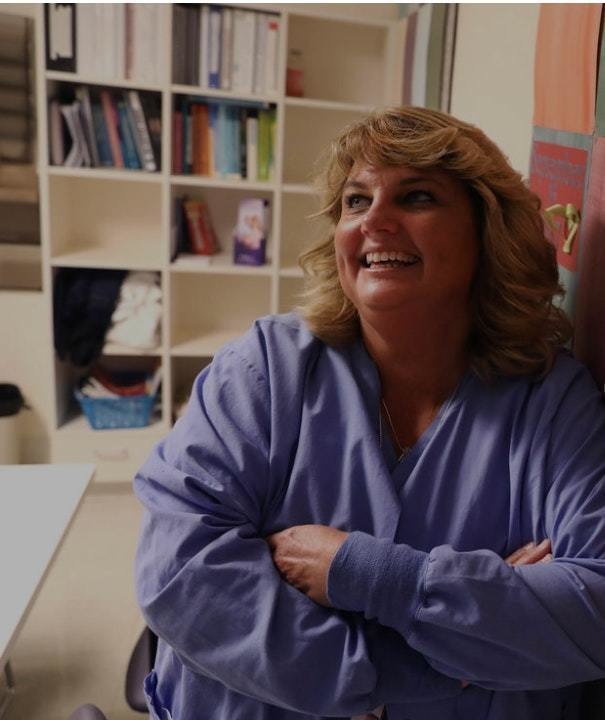
Anyebuno was surprised to see that the tiny baby was breathing on his own, despite all the stress he had experienced.
“This is one of the cases I won’t forget,” Anyebuno said. “There was someone looking down on him.”
After medical staff got the baby’s condition under control, Joseph spoke again to the young father, who had been sobbing for nearly three hours while watching doctors and nurses care for the baby. The nurse told him that if he relinquished the baby that day, she, by law, could no longer give him updates on the baby’s condition. But if he wanted to get a parental bracelet and take some time for he and the mother to explore their options, they could come back, Joseph recalled.
The boy took the bracelets, and the young couple came back the next day, and every day after for several weeks.
A mother’s love
Cherish Coates fell in love with her baby, Allen, the first time she saw him in his incubator. But the 15-year-old cried every time she thought about telling her grandparents about her unexpected pregnancy.
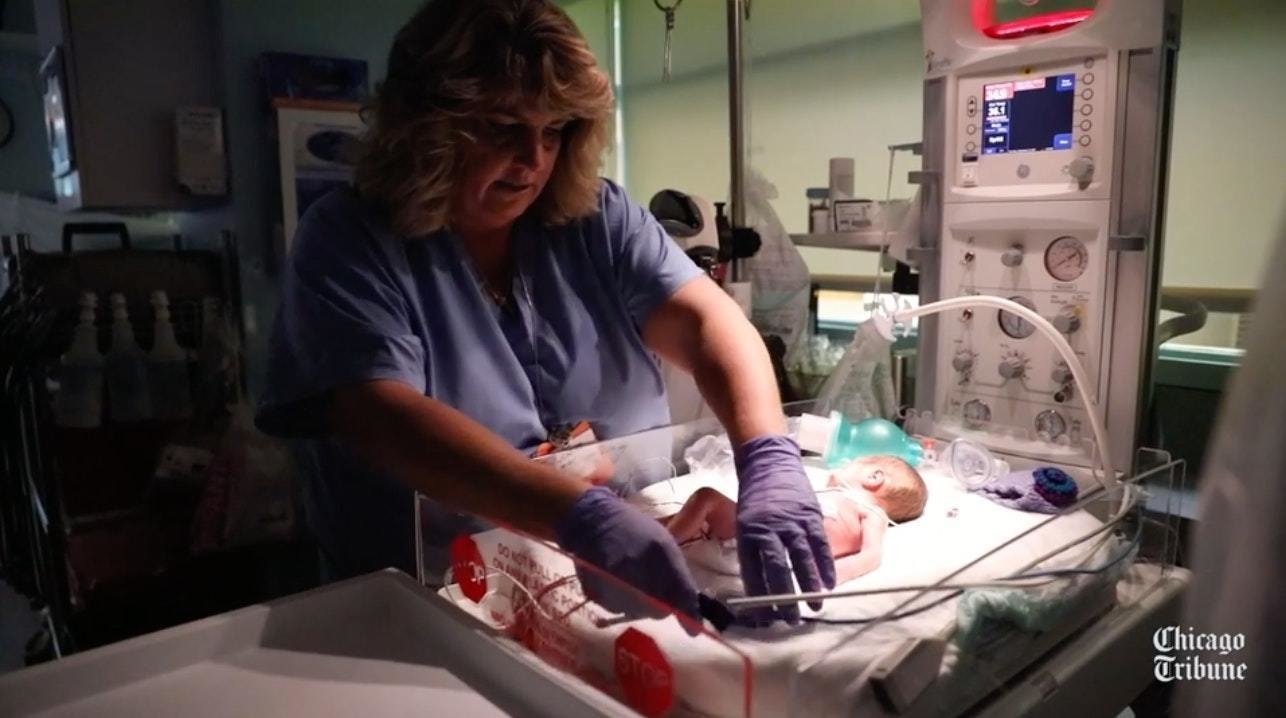
With Joseph’s help, Coates arranged to speak with hospital officials about open adoption, which would allow her to help choose potential parents. As Coates considered her options, she formed a routine: she’d let her grandfather drop her off at school, then take a city bus to the hospital. Each day, she brought chilled bags of breast milk she had pumped at home and hidden in a basement refrigerator.
During the visits, Coates opened up to Joseph about her grandparents and her fears about giving up on her own dreams because of the teen pregnancy.
Coates said Joseph “was not judgmental at all, just very nurturing and motherly. She encouraged me to tell my grandparents, but she didn’t talk to me like I was just some stupid teenager. She talked to me like I was a person.”
About a month after Allen’s birth, as the baby was almost ready for discharge, Coates got the nerve to bring her own mother into the hospital. She reasoned she would have to be understanding because she had been in the same situation years earlier. The pair walked into the nursery and to Allen’s incubator. The daughter, too scared to speak, said nothing.
Coates recalled that her mom’s face turned pale as a ghost after seeing Allen in the incubator. Coates was relieved when Joseph approached and filled the silence. “Jeannie was there. She spoke and explained he was born early.”
After his teen father brought him to SwedishAmerican hospital in Rockford in a shoebox, newborn Allen Coates was treated for hypothermia, dehydration and an infection from the household scissors used to cut his umbilical cord. The next morning, he was stable and his mother was hovering nearby.
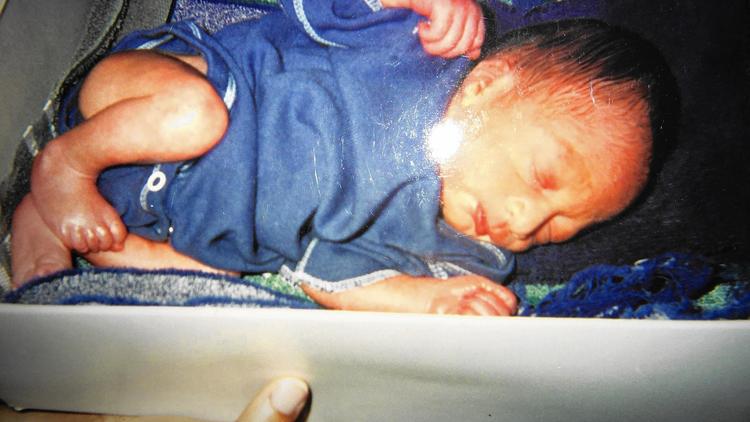
Coates’ mother immediately wanted to hold the boy. Coates’ grandmother had a similar reaction a few hours later. That day and for years after, the family spoke in awe of how Coates was able to keep her pregnancy a secret.
When baby Allen was discharged from the hospital a few days later, at nearly a month old, Joseph and Coates hugged as the nurse repeated several times, “Just promise me you will stay in school.”
To Coates’ surprise, neither her grandparents nor her mother ever expressed anger about what had happened. They told her only that they wished she hadn’t hidden her pregnancy from them for so long.
The family agreed that Coates’ grandparents and her mother would care for Allen during the day so the teen could continue with high school. After a few months, Coates enrolled at an alternative school that offered a daycare for students.
“My grandparents nearly cried because they loved watching him,” Coates said. “However, I did not want to place that burden on them.”
